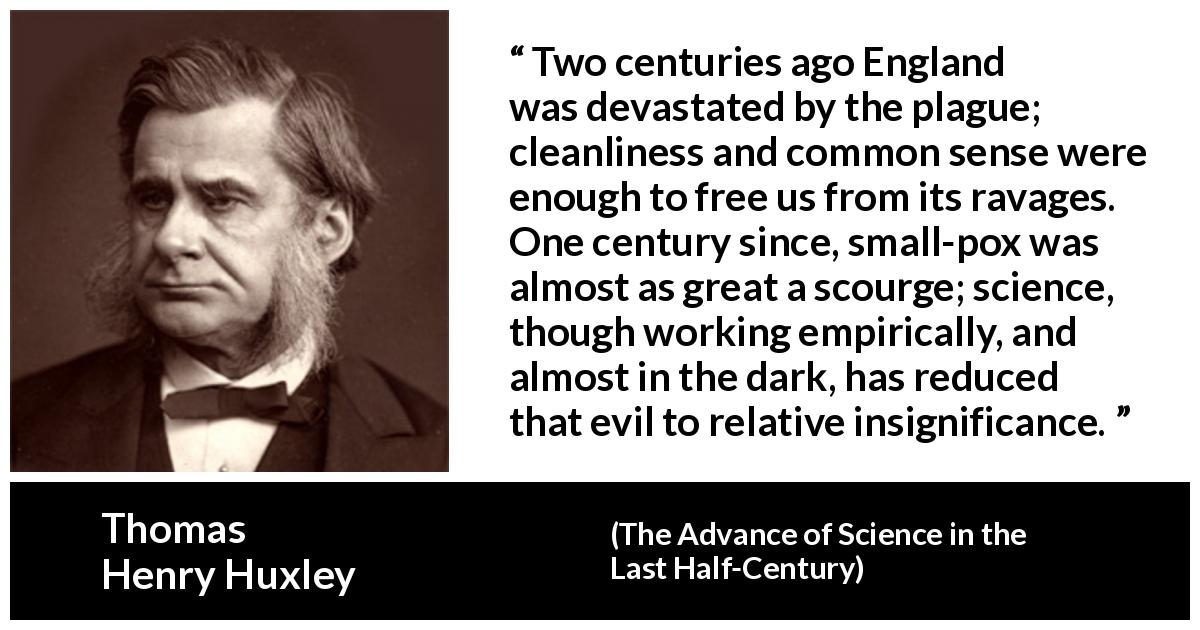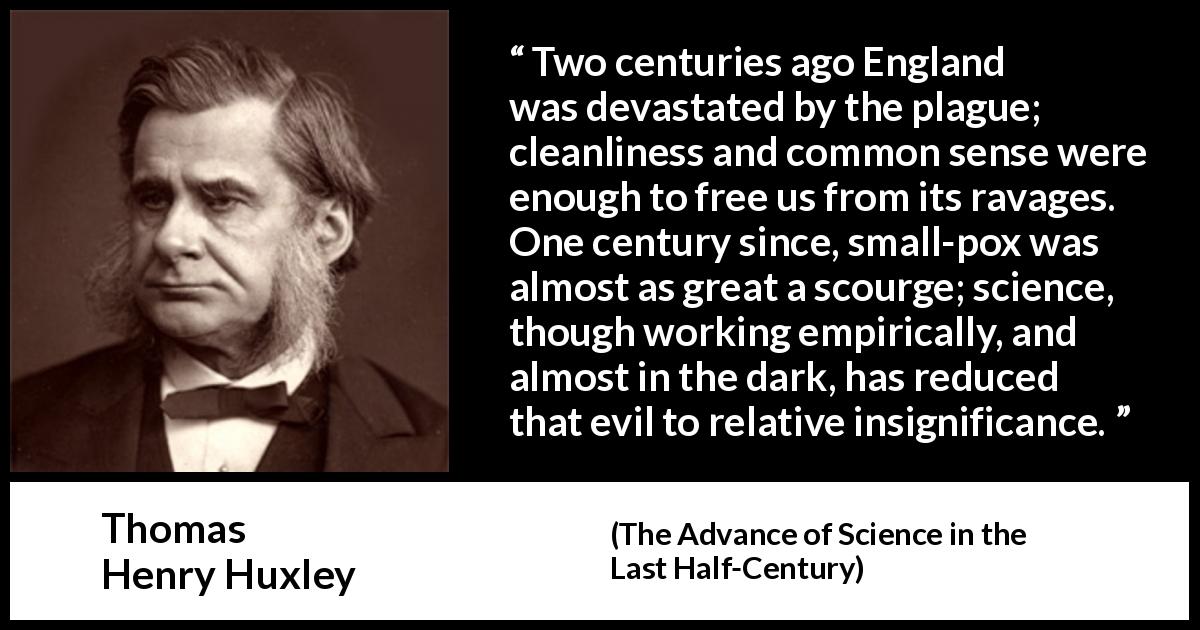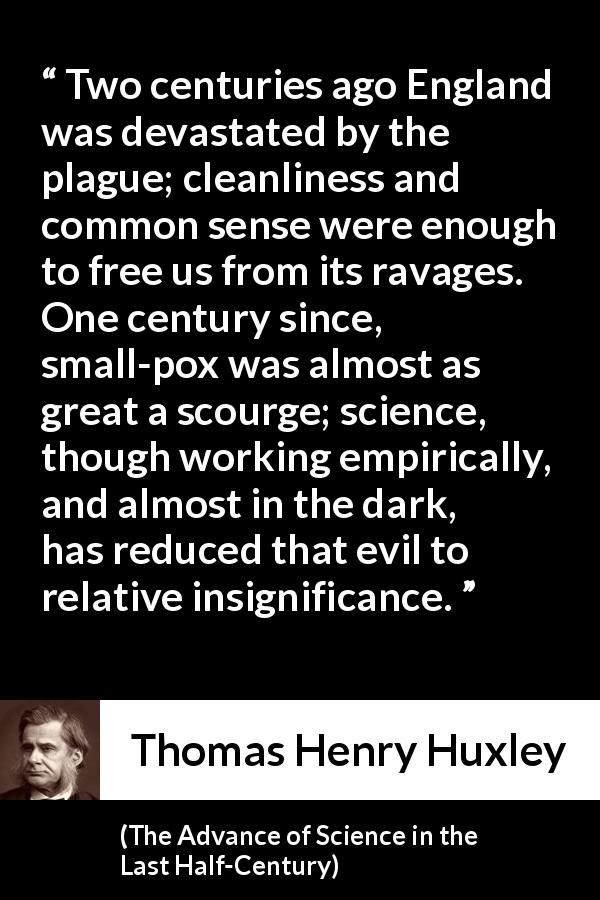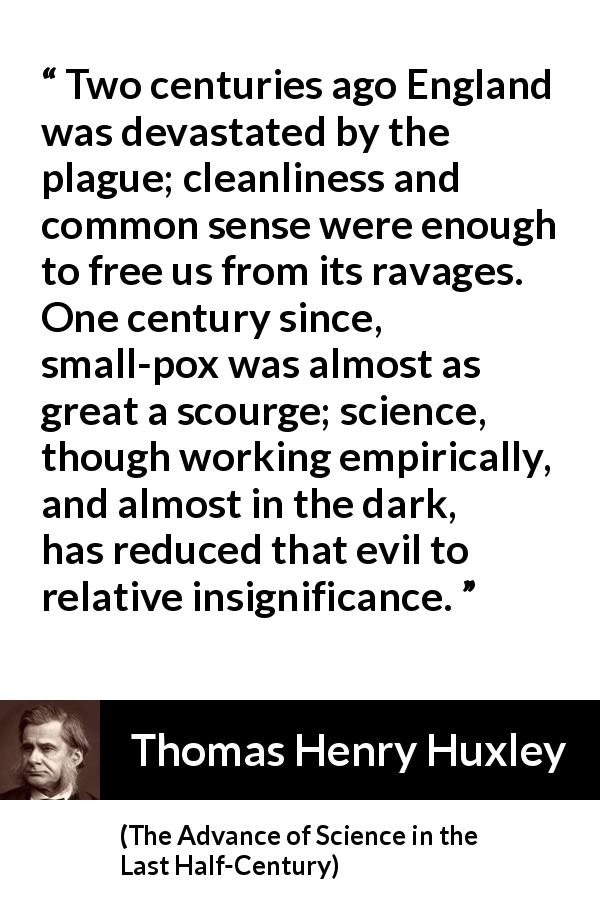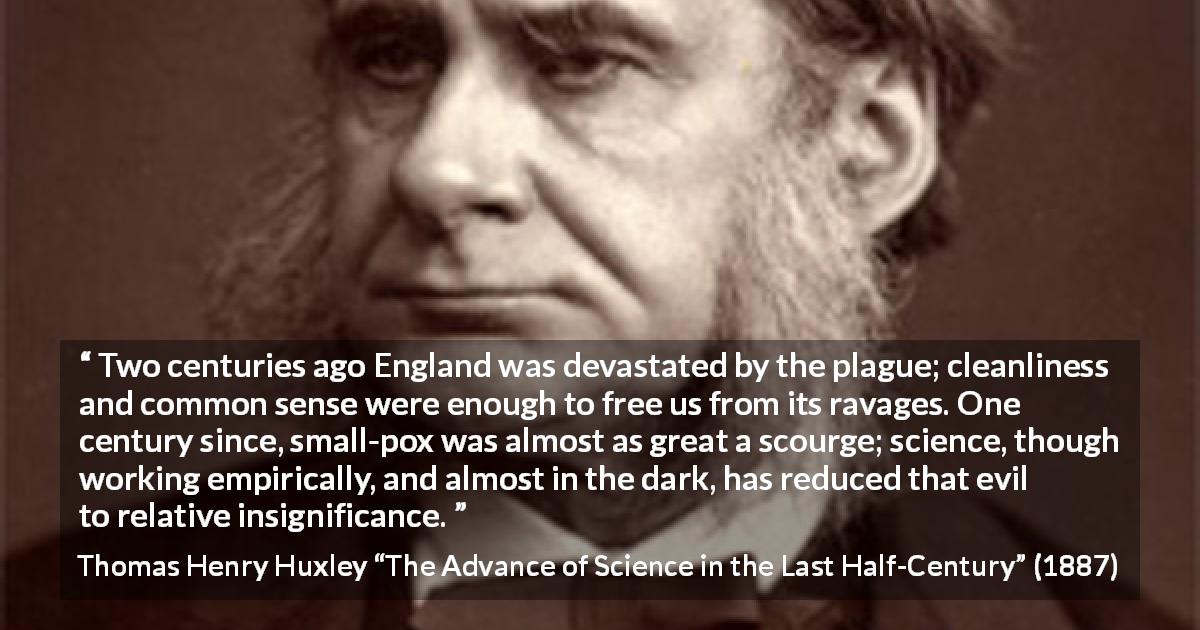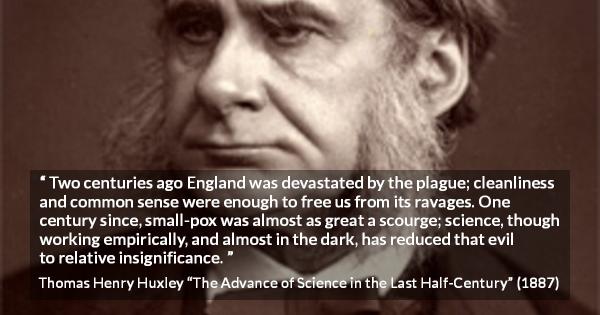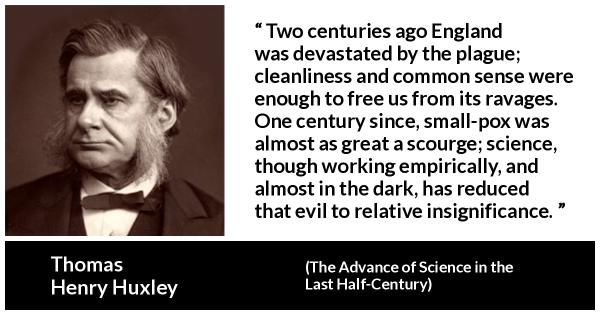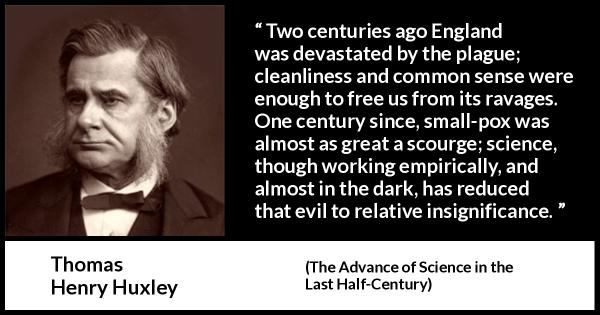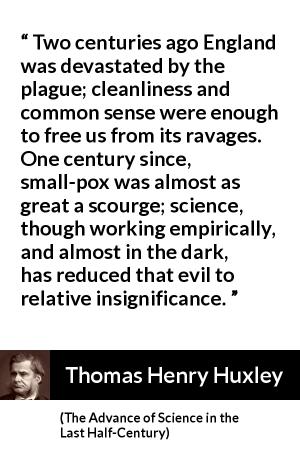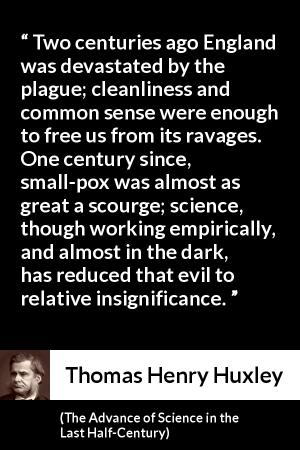“ Two centuries ago England was devastated by the plague; cleanliness and common sense were enough to free us from its ravages. One century since, small-pox was almost as great a scourge; science, though working empirically, and almost in the dark, has reduced that evil to relative insignificance. ”
Thomas Henry Huxley, The Advance of Science in the Last Half-Century (1887). copy citation
| Author | Thomas Henry Huxley |
|---|---|
| Source | The Advance of Science in the Last Half-Century |
| Topic | disease progress science |
| Date | 1887 |
| Language | English |
| Reference | |
| Note | |
| Weblink | http://www.gutenberg.org/files/15253/15253-h/15253-h.htm |
Context
“Unless the fanaticism of philozoic sentiment overpowers the voice of philanthropy, and the love of dogs and cats supersedes that of one's neighbor, the progress of experimental physiology and pathology will, indubitably, in course of time, place medicine and hygiene upon a rational basis. Two centuries ago England was devastated by the plague; cleanliness and common sense were enough to free us from its ravages. One century since, small-pox was almost as great a scourge; science, though working empirically, and almost in the dark, has reduced that evil to relative insignificance. At the present time, science, working in the light of clear knowledge, has attacked splenic fever and has beaten it; it is attacking hydrophobia with no mean promise of success; sooner or later it will deal, in the same way, with diphtheria, typhoid and scarlet fever.”
source
